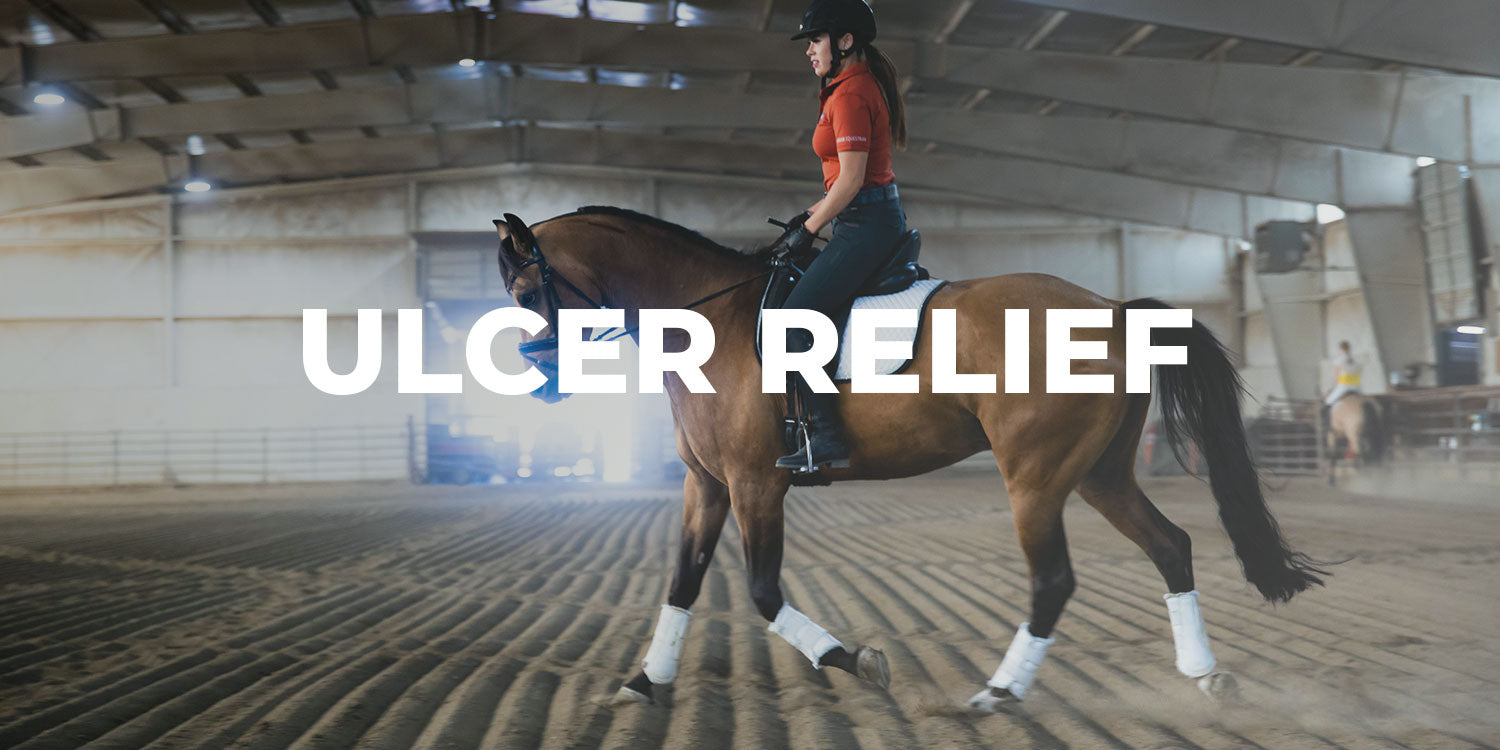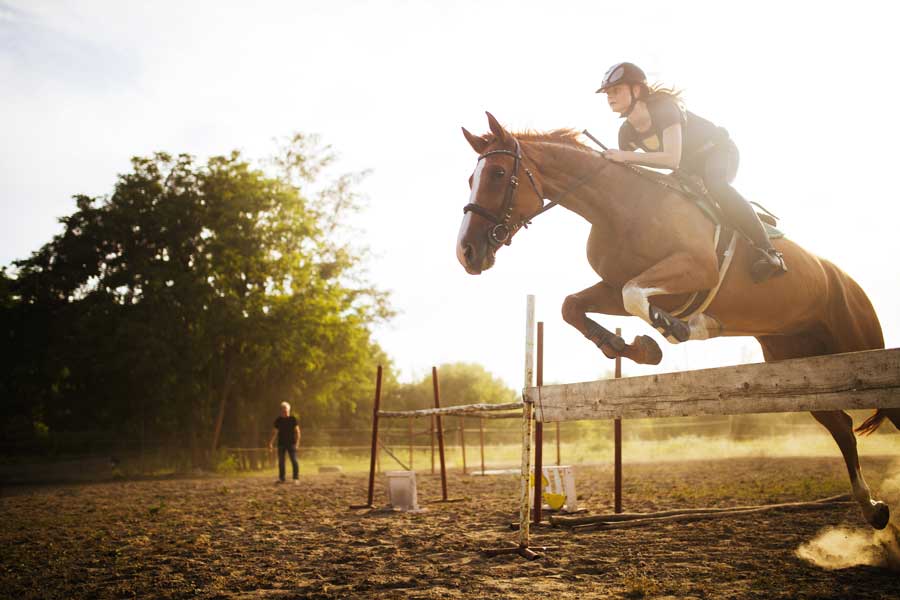Horses get ulcers. And when it comes to ulcers, an ounce of prevention is worth a pound of cure.
Studies have shown that up to 90% of race horses have gastric ulcers. And 60% of show horses. Even if your horse doesn't compete, there's a high probability they'll develop ulcers at some point.
How does this happen?
Gastric ulcers are formed when the lining of the stomach is eroded by your horse's natural stomach acid. This creates sores that cause irritation in your horse and can begin to lead to bad behavior or sensitivity to the touch, like with "cinchy" or "girthy" horses.
Horses are meant to graze all day on grass, which in many cases isn't possible. Constant grazing helps to buffer the acid and prevent the lining of the stomach from being eroded by excess stomach acid. If you feed your horse twice a day, the acid is building up in between feedings and may be causing ulcers.
Stress is another potential cause of gastric ulcers in horses. Training, hauling, unfamiliar environments, etc can all lead to ulcers.
Risk factors for equine ulcers:
- Infrequent feedings
- Stress
- Intense exercise
- Grain-based diet
- Travel
- Limited turnout
While the only way to definitively know if your horse has ulcers is through gastroscopy, there are hints that your horse is giving you.
Equine gastric ulcer symptoms:
- Sensitive to the touch around the belly or flank (cinchy/girthy)
- Weight loss / poor appetite
- Changes in coat
- Poor behavior
- Wood chewing / eating dirt
If your horse is exhibiting any of these symptoms, you may want to take steps to address the root causes of ulcers and give your horse's body the chance to heal.
You can start by doing what you can to bring your horse's feeding in line with the way nature intended. If you have access to open pasture, that is great and will allow your horse to graze forage slowly throughout the day. If you're like a lot of horse owners these days, that isn't a possibility. You may want to look into purchasing a slow feeder instead. A slow feeder will help simulate grazing and will help keep the stomach acid buffered throughout the day. If possible, be sure to keep the slow feeder on the ground, since chewing with the head low is more in line with the horse's natural physiology.
Another thing you can proactively do to prevent or mitigate ulcers is to feed a daily gastric support supplement. MagnaGard and MagnaGard Plus are all natural gastric support supplements. MagnaGard alkalizes the gut, binds toxins, and provides essential trace minerals that promote overalls health. Those who feed MagnaGard report calmer horses, improved appetite, improved coat, and overall better behavior. Since it is an all natural supplement, it can be fed indefinitely to help prevent ulcers.
If your horse's ulcers are causing serious problems, you should talk to your vet about a treatment plan. Your vet may recommend a gastric supplement as well as omeprazole. Omeprazole is a medication approved by the FDA for treatment of equine ulcers. It works by suppressing stomach acid production and may be a good short-term solution for addressing acute problems.
Tips for preventing/addressing gastric ulcers:
- Use a slow-feeder to simulate grazing
- Feed a daily gastric support supplement like MagnaGard
- Talk to your vet, administer omeprazole


